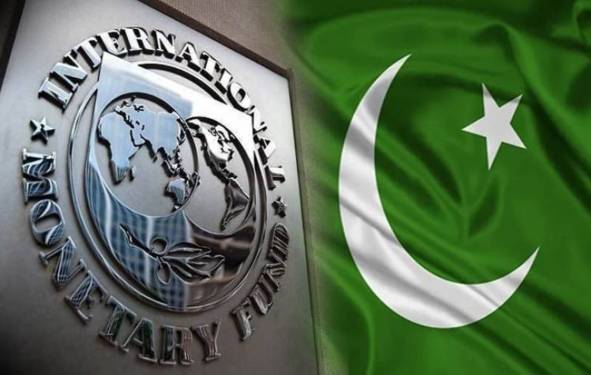
International Monetary Fund has assured that Pakistan has made "substantial progress" with regard to the policy commitments needed to unlock the crucial $1.1 billion loan, Bloomberg reported.
According to the the international lender, Pakistan has a few more tasks before it can finalise a $6.5 billion programme to avoid a default.
What stands between Pakistan and the loan is IMF's demand of seeking written guarantees from bilateral partners to provide financing subsequent to the fund’s disbursement.
These countries include Saudi Arabia, the United Arab Emirates and Qatar. They have already provided assistance in recent months by rolling over debts, providing dollar deposits, and granting oil on credit.
"A staff-level agreement will follow once the few remaining points are closed," the report quoted Esther Perez Ruiz, IMF resident representative for Pakistan, as saying. "Ensuring there is sufficient financing to support the authorities in the implementation of their policy agenda is the paramount priority."
Read this too: Pakistan-IMF Deal: Concerns Of A Potential Default Resurface
The representative also said that government did not seek advice from the international lender before announcing its low-income groups' petrol subsidies.
According to Perez, the staff is looking for further information on the scheme’s operation, cost, targeting, safeguards against fraud and abuse, and mitigating measures. They will carefully address these aspects with the authorities.
A day earlier, the federal government declared that it would subsidise petrol up to Rs 100 for motorcycle riders and owners of automobiles up to 800 cc in order to lessen the impact of rising fuel prices on people who are already suffering from inflation.
According to the recent data published by the State Bank of Pakistan, the central government’s debt rose to approximately Rs55 trillion in January 2023, showing a 30 percent increase from the previous year.
Pakistan is struggling to avoid a default and is in a desperate need of an economic lifeline through bailout funds from the IMF and has an urgent need to repay approximately $3 billion of debt by June, with an expected rollover of $4 billion.
According to the the international lender, Pakistan has a few more tasks before it can finalise a $6.5 billion programme to avoid a default.
What stands between Pakistan and the loan is IMF's demand of seeking written guarantees from bilateral partners to provide financing subsequent to the fund’s disbursement.
These countries include Saudi Arabia, the United Arab Emirates and Qatar. They have already provided assistance in recent months by rolling over debts, providing dollar deposits, and granting oil on credit.
"A staff-level agreement will follow once the few remaining points are closed," the report quoted Esther Perez Ruiz, IMF resident representative for Pakistan, as saying. "Ensuring there is sufficient financing to support the authorities in the implementation of their policy agenda is the paramount priority."
Read this too: Pakistan-IMF Deal: Concerns Of A Potential Default Resurface
The representative also said that government did not seek advice from the international lender before announcing its low-income groups' petrol subsidies.
According to Perez, the staff is looking for further information on the scheme’s operation, cost, targeting, safeguards against fraud and abuse, and mitigating measures. They will carefully address these aspects with the authorities.
A day earlier, the federal government declared that it would subsidise petrol up to Rs 100 for motorcycle riders and owners of automobiles up to 800 cc in order to lessen the impact of rising fuel prices on people who are already suffering from inflation.
According to the recent data published by the State Bank of Pakistan, the central government’s debt rose to approximately Rs55 trillion in January 2023, showing a 30 percent increase from the previous year.
Pakistan is struggling to avoid a default and is in a desperate need of an economic lifeline through bailout funds from the IMF and has an urgent need to repay approximately $3 billion of debt by June, with an expected rollover of $4 billion.

